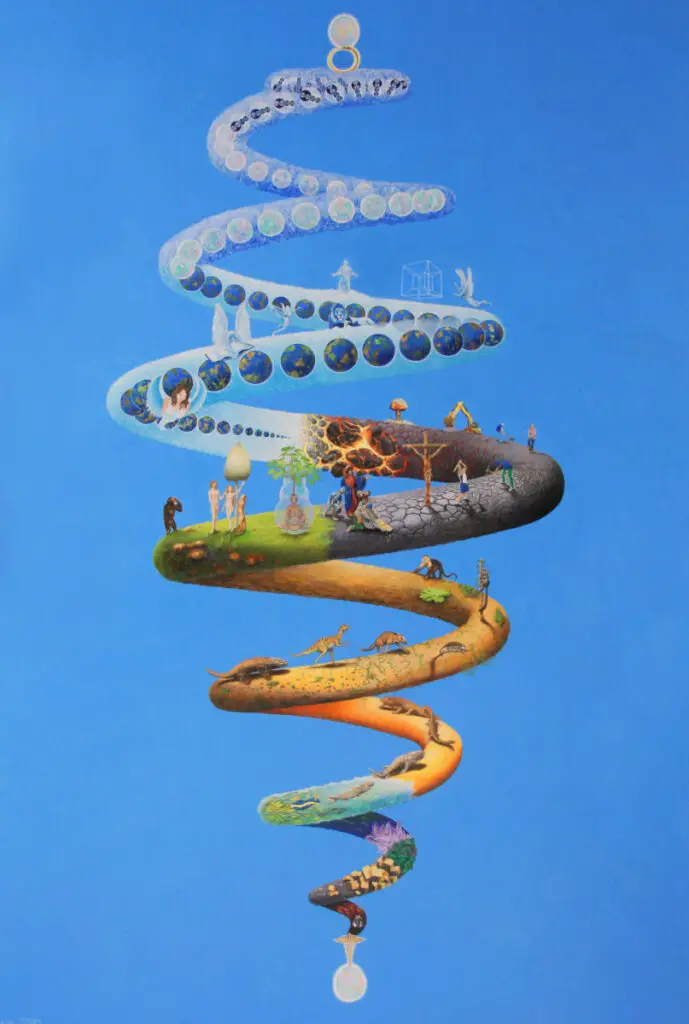What does Philosophy mean? A multifaceted field of study that encompasses a wide range of subjects and approaches, Philosophy is about understanding the nature of reality and the world around us,. It asks fundamental questions about the nature of existence, knowledge, truth, and the meaning of life.
These questions are often posed as problems to be studied or resolved.
Philosophy is distinguished from other fields of study by its emphasis on:
- critical thinking,
- logical reasoning, and
- the examination of arguments and evidence.
It is a discipline that has a long history, dating back to ancient civilisations in Greece, and it has had a significant influence on many other fields of study, including science, art, and politics.
Explaining Philosophy can be Difficult
Given philosophy’s broad nature, explaining what it is and what it means can be difficult. There are three approaches worth consideration:
- through its branches
- through its historical context
Philosophy through its Branches
One way to explain philosophy is to consider its branches and the type of questions each branch seeks to answer.
Four Main Branches
- Metaphysics is concerned with questions about the nature of reality and the fundamental nature of the universe, such as whether there is an ultimate reality or whether there is a God.
- Epistemology, on the other hand, is concerned with questions about knowledge and belief, such as how we come to know things and what it means for something to be true.
- Ethics, is another branch concerned with questions about moral values and principles, such as what is right and what is wrong, and how we should live our lives.
- Political philosophy, meanwhile, is concerned with questions about the nature of government and the relationships between individuals and society.
Sub-Branches
In addition to these traditional branches, there are also more specialised areas of study, such as
- philosophy of science, which examines the nature of scientific knowledge and the methods used to acquire it, and
- philosophy of language, which investigates the nature of language and its role in communication and understanding.
Philosophy through its Historical Context
Another way to approach the question of meaning is to view it in its historical context.
The Derivation of the Term

The term comes from the Greek words
- philo meaning love, and
- sophia meaning wisdom,
so philosophia (philosophy) is the love of wisdom.
With its long and varied history, the roots of philosophical thought dating back to ancient civilisations such as Greece, China, and India. Throughout history, philosophers have grappled with fundamental questions about the nature of reality, morality, humanity, life, and knowledge.
First Discipline of Study

Perhaps most notably, philosophy was the first official discipline of study. It was the key to unlocking the disciplines we know today. The questions we currently ask in neuroscience, physics, and biology, were first asked by the earliest philosophers.
Philosophy in the Context of the 21st Century
What does philosophy mean in today’s world? Philosophy today is a vibrant field of study that continues to address fundamental questions about reality and existence, knowledge and values, and reality itself.
Philosophy and the Advance of Technology
In the contemporary world, the globalisation of ideas and the rapid pace of technological and social change continue to shape the development of philosophical ideas.
Philosophers today are influenced by a wide range of factors, including advances in science and technology, changes in cultural and social norms, and the rise of new political and social movements. But they continue to be greatly influenced by their predecessors.
New Areas of Philosophy
…nothing happens by chance. Our universe is miraculous by it’s very existence, but we are falling into a material trap and forgetting our purpose in the great scheme of things…
Adrian Kenyon
Many of the same questions that philosophers have grappled with for centuries are still being studied and debated today, and there are also many new areas of philosophical inquiry that have emerged in recent times.
Some areas of focus in modern philosophy include the nature of consciousness, the foundations of mathematics, the ethics of artificial intelligence, and the nature of social and political systems.
In addition to traditional areas of study, modern philosophy often intersects with and draws upon insights from other fields, such as psychology, neuroscience, economics, and anthropology.
Expanding our Knowledge
A must-use resource for anyone looking to expand their understanding is the Stanford Encyclopedia of Philosophy. A trusted source, the website is operated by Stanford University and contains a plethora of articles written by scholars summarising the branches, theories, and names in philosophy.
The YouTube channel CrashCourse, created in partnership with PBS, has a 46-part introduction to philosophy. Videos are approximately 10 minutes long and provide robust and engaging summaries of philosophy’s most central ideas, thinkers, and topics.
Explaining Philosophy in a Nutshell
At its core, philosophy argues what it means to think deeply and critically about fundamental questions and to seek out answers through reasoning and argument.
It is a discipline that encourages us to examine our beliefs and assumptions and to consider alternative perspectives, and it helps us to develop a clearer understanding of the world and our place in it.


